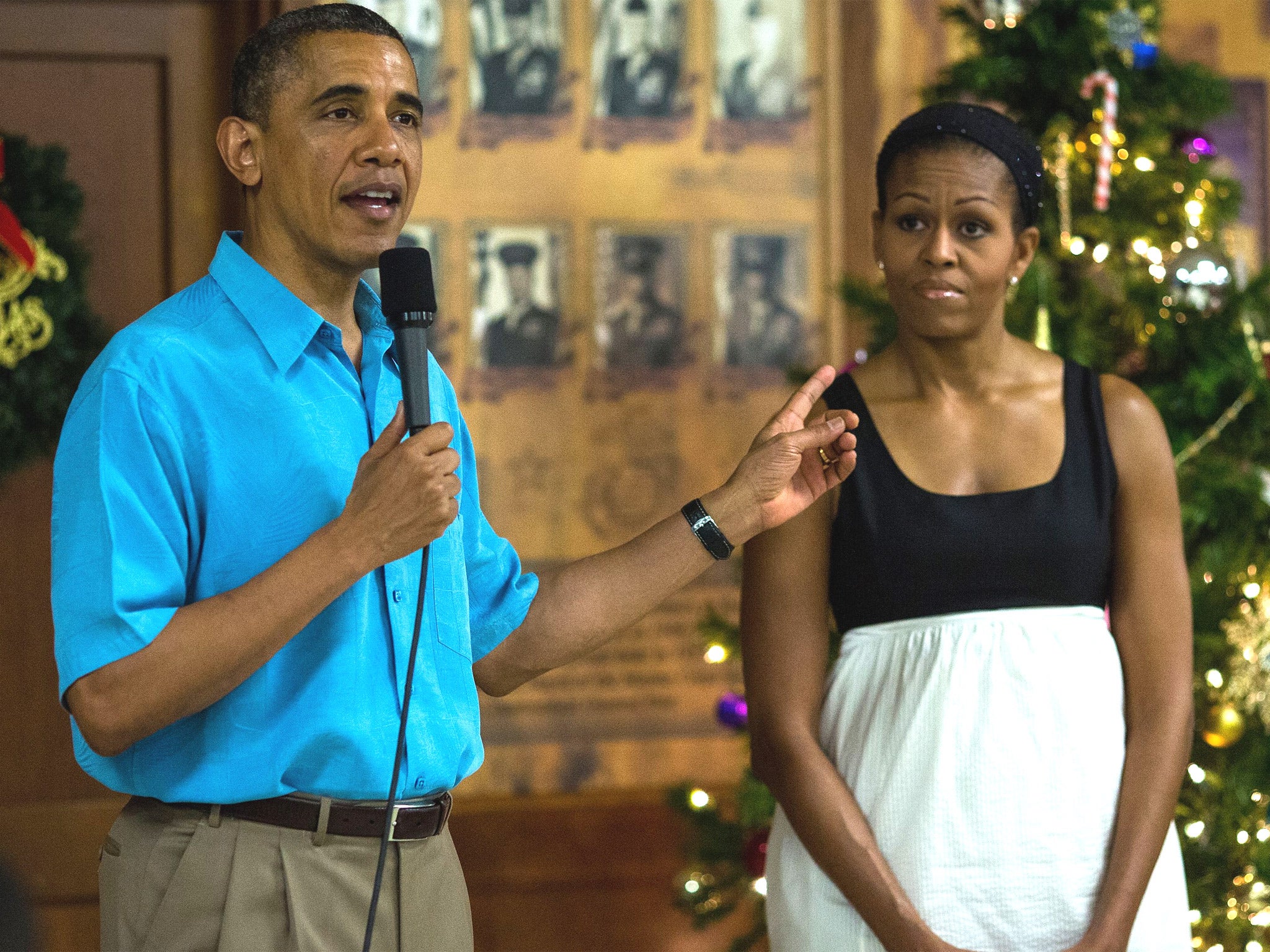Fiscal cliff crisis forces Obama to abandon Hawaii trip

With only days to go before the US goes over the “fiscal cliff”, President Obama cut short his Christmas break in Hawaii to arrive back in Washington DC in a last-ditch attempt to hammer out an alternative to the more than $600bn in looming spending cuts and tax rises.
Lawmakers, meanwhile, were put on notice about a related challenge after the Treasury Secretary, Tim Geithner, sounded a warning about the country's debt limit. US government borrowing is set to hit the debt ceiling on Monday, he said in a letter to Congress today, adding that the Treasury will soon begin implementing "extraordinary measures" that will give the US around two months before it runs the risk of a calamitous default.
However, that time-frame is subject to uncertainty, Mr Geithner said, given the impasse in the fiscal cliff negotiations, as the White House and Congressional Republicans struggled to reach a deal.
If an agreement cannot be reached, more than $600bn in spending cuts and tax hikes will automatically come into force in early January and, it is predicted, tip the US back into recession.
But even as Mr Obama and members of both the House and the Senate hurried back to Washington, it emerged that ordinary Americans had become more pessimistic about the prospects of a solution that would spare another blow to their already battered wallets. Only 50 per cent think it likely that a deal will be reached, against 48 per cent who believe it is unlikely, according to a new Gallup poll.
That contrasts with a poll earlier in the month in which 57 per cent were confident about the prospect of a compromise between President Obama and the man leading the negotiations on behalf of the Republicans, House Speaker John Boehner. Talks between the two broke down last week amid continued disagreement over taxing the wealthiest Americans.
With no comprehensive agreement covering both the various Bush-era tax breaks that are due to expire at the end of the year and the upcoming cuts to government spending likely to be struck in the time remaining, the President mooted a narrower pact to protect the majority of Americans before he left for his Hawaiian break on Friday.
The President's scaled-down plan would freeze tax rates for households earning less than $250,000 a year (£155,000) while extending jobless benefits for more than two million Americans. "That's an achievable goal," Mr Obama said last week.
Any pact, however, is expected to face challenges in Congress, after Mr Boehner, facing defections on his own flank, failed to push through a House measure backing tax hikes only on those earning $1m a year or higher.
The medium-term consequences of going over the fiscal cliff – a term coined by Federal Reserve chairman Ben Bernanke – could be dire for what remains a weak economy. A long period of disagreement between the two parties could, according to estimates published by the independent Congressional Budget Office, cause the US economy to contract by 0.5 per cent in the first half of 2013 as it heads into recession.
Subscribe to Independent Premium to bookmark this article
Want to bookmark your favourite articles and stories to read or reference later? Start your Independent Premium subscription today.

Join our commenting forum
Join thought-provoking conversations, follow other Independent readers and see their replies